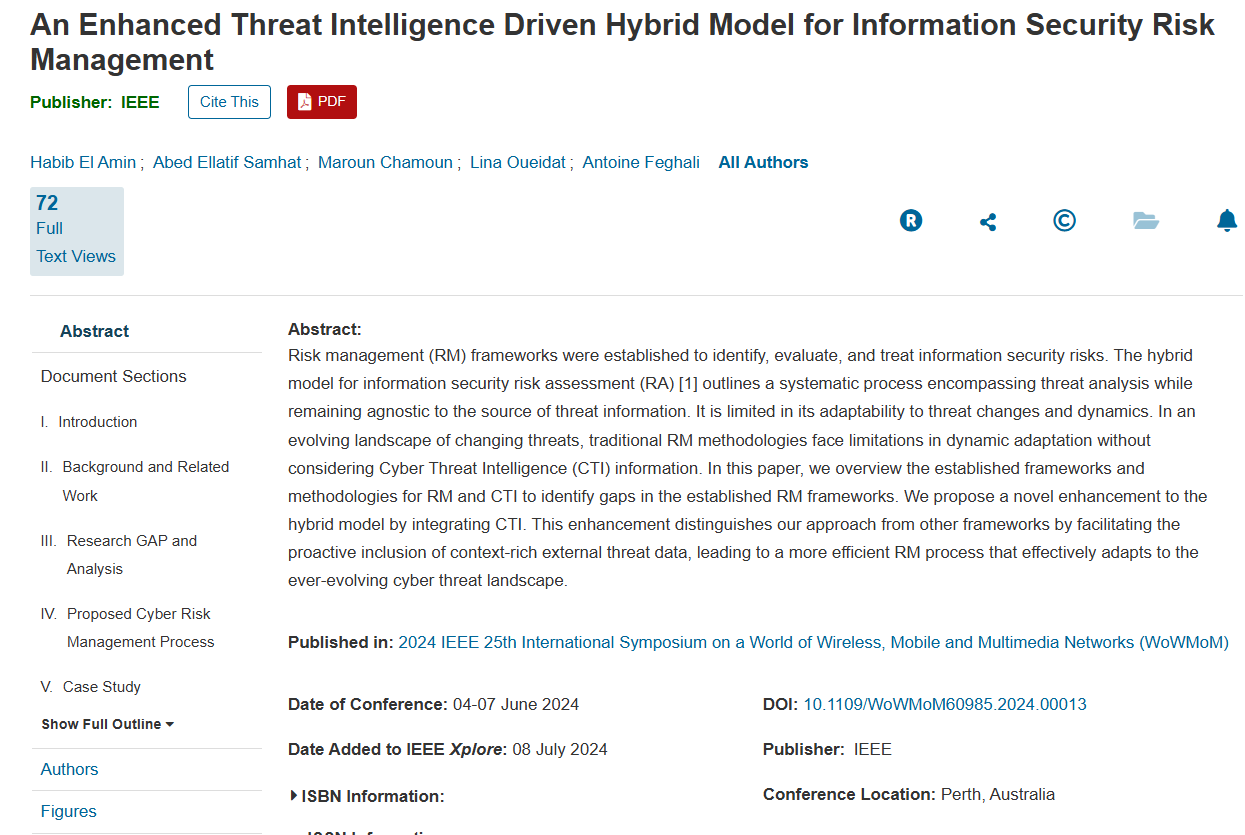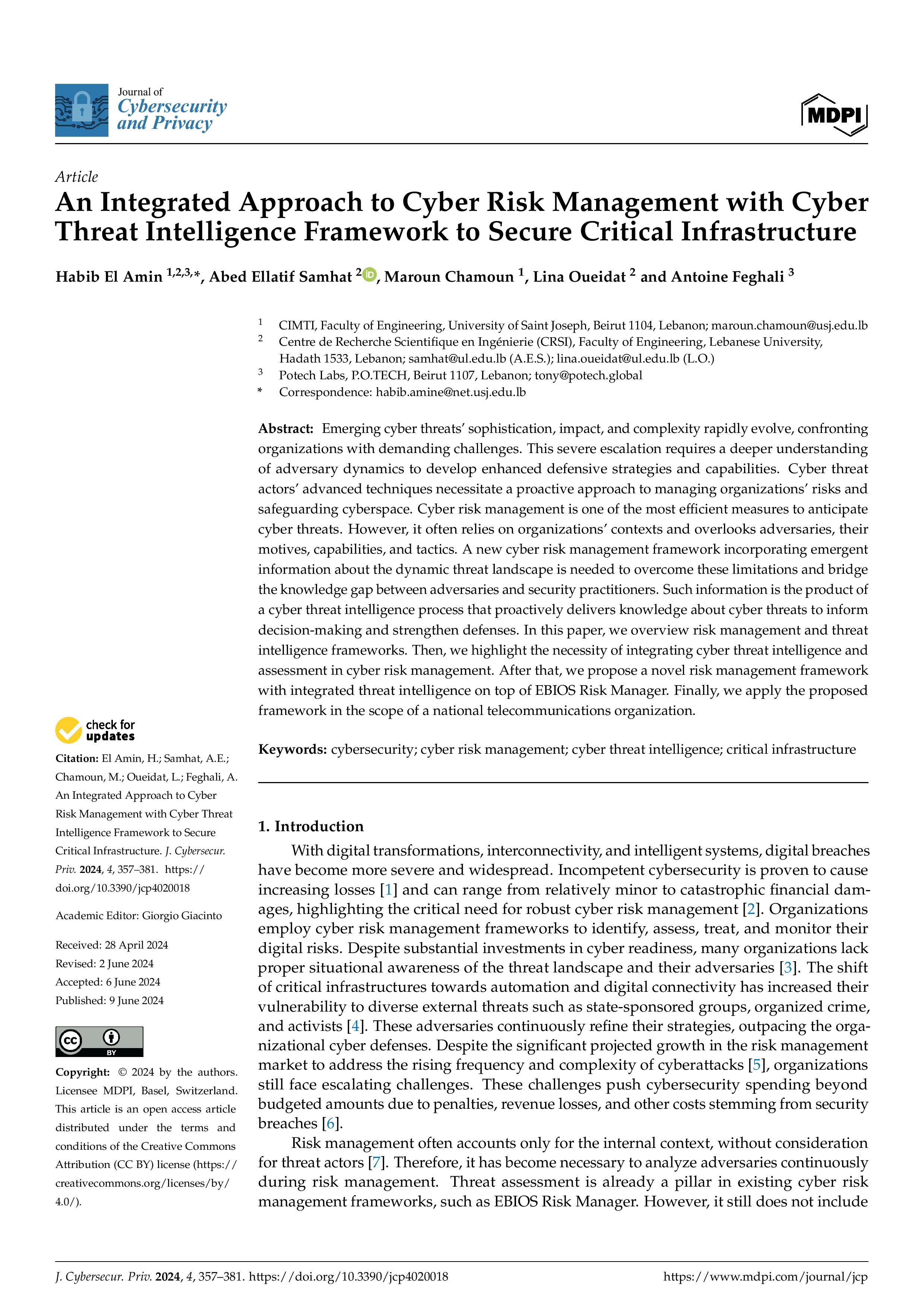As part of an ongoing collaborative effort involving the academic sector (Lebanese University - USJ - Potech Lab) and the public sector (Presidency of the Council of Ministers - Lebanon) and the National Cyber Security Commission to establish a strong Lebanese national security framework, two new articles by Habib Al-Amin, Lina Oweidat, Maroun Chamoun, Abdellatif Samahat to establish a strong Lebanese national security framework, two new articles written by Habib El-Amin, Lina Oweidat, Maroun Chamoun, Abdellatif Samhat and Antoine Feghali have been published. The articles form an essential part of Habib El-Amin's research during his PhD dissertation in engineering at the Lebanese University entitled: “An Enhanced Threat Intelligence Driven Hybrid Model for Information Security Risk Management”.
The article was accepted and presented at the 25th International (IEEE) International Symposium on World of Wireless, Mobile, and Multimedia (WoWMoM). This conference brings together researchers and practitioners from around the world to explore all aspects of wireless, mobile, and multimedia communications. This research proposes to enhance the hybrid model of information security risk assessment by incorporating cyber threat intelligence to address the limitations of traditional risk management frameworks in adapting to the dynamic threat landscape.
The full paper can be read at the link:
https://ieeexplore.ieee.org/document/10579261
“An Integrated Approach to Cyber Risk Management with Cyber Threat Intelligence Framework to Secure Critical Infrastructure”
The article has been accepted and published in the Journal of Cybersecurity and Privacy (MDPI). This research proposes a new cyber risk management framework that integrates threat intelligence into a risk manager (EBIOS) to address the evolving complexity of cyber threats. It emphasizes the need to understand adversary dynamics and proactively deliver knowledge to strengthen organizations' defenses.
The full paper can be read at the link:
https://www.mdpi.com/2624-800X/4/2/18
Based on the previous article that introduced a new decentralized framework using blockchain technology, specifically the Hyperledger Fabric, to address cyber risk management constraints and enhance security across diverse sectors, especially for governments.
The full article can be read here:
https://rdcu.be/dtybP

